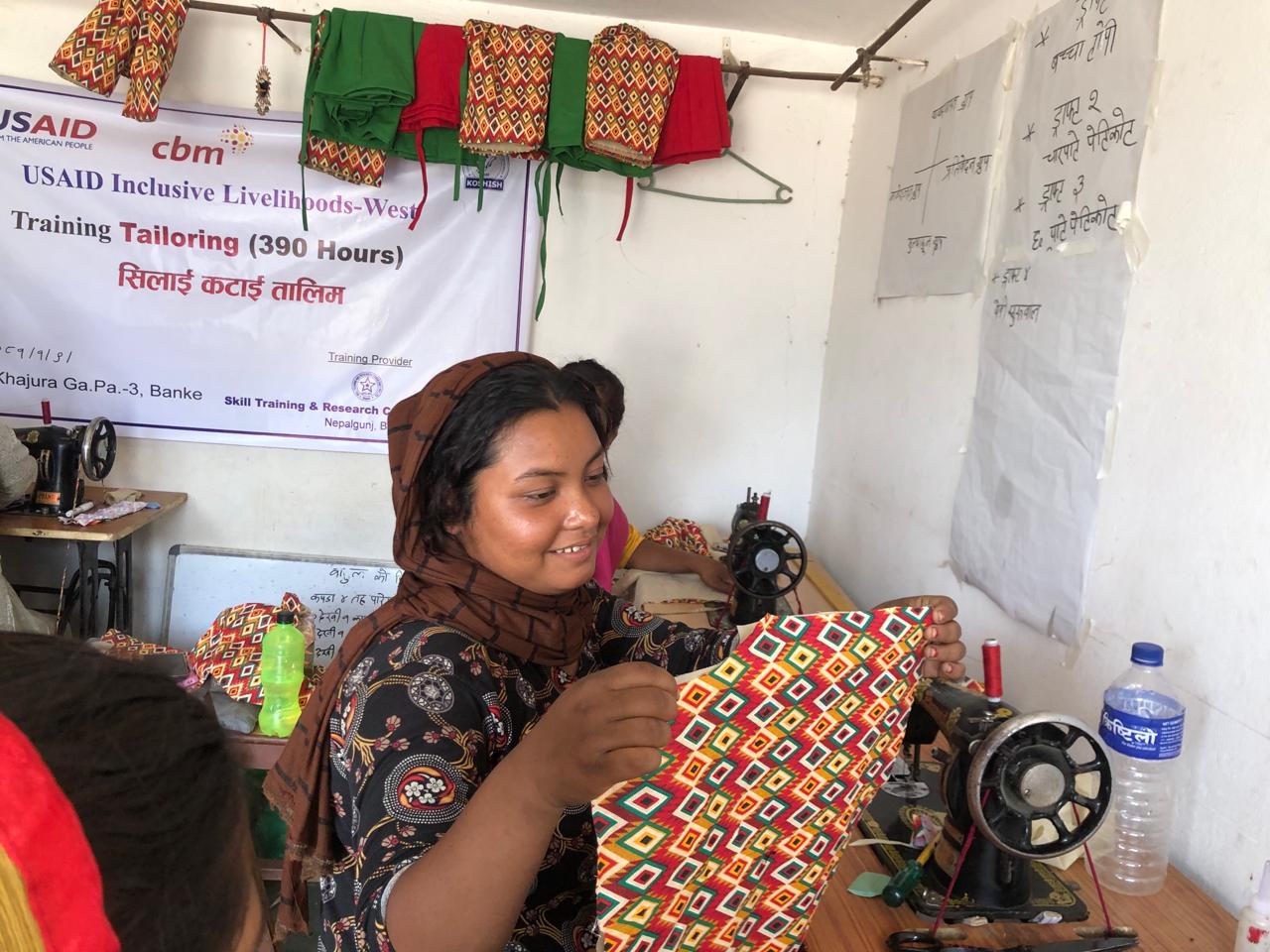
News
‘I Won’t Give Up My Rights Anymore’
Play audio version
After a Life-Altering Accident and Years of Isolation, Lakshmi Lohar Reclaims Her Confidence and Sense of Purpose
February 1, 2025
LUMBINI PROVINCE, Nepal — Twelve years ago, the roar of a motorcycle and the screech of tires pierced the quiet hum of 7-year-old Lakshmi Lohar’s village in southwestern Nepal. Two drunken police officers sped through the streets, striking her as she played on the rarely trafficked road. The impact crushed her chest, requiring months of treatment. Her family’s life crumbled as medical expenses consumed their meager savings. While Lakshmi’s physical wounds eventually healed, the deeper scars – the ones unseen – remained.
The accident shattered the young girl’s sense of safety. The presence of men, even in her imagination, became a source of overwhelming fear. With her family focused on survival, she was often left alone while they worked, limiting her chances to engage with others. Whispers from villagers labeled her “goljyangri,” a derogatory term for those perceived as having an intellectual disability.
Years passed in silence, unease, and a gnawing ache. Lakshmi’s fear of participating in community life, including at school, stifled her ability to learn. She grew increasingly withdrawn, less productive, and struggled to connect with others. The world outside her home felt like a minefield.
In 2023, KOSHISH National Mental Health Self-Help Organization launched a program in her community aimed at supporting persons with psychosocial disabilities. The initiative focused on community inclusion, supported decision-making, and creating equal access to employment and livelihoods. For Lakshmi, this program became a lifeline.
She joined a self-help group facilitated by KOSHISH’s lived-experience facilitators. At first, attending the meetings was a struggle. The venue was at the municipal level, requiring her to travel by vehicle – a daunting task for someone who had spent years confined by fear and stigma. Her attendance was sporadic, but the group’s unwavering support began to chip away at her inhibitions. Slowly, she started to connect with peers from her locality, forming a supportive network that benefited all of them collectively.
Breaking Barriers, One Stitch at a Time
Lakshmi was also selected for vocational training in tailoring – a decision met with skepticism by some family members. Their dismissive words, “What can she possibly do?” echoed in her mind. On the first day of training, Lakshmi didn’t show up. The trainers wondered if they had made the right choice. Even some community members whispered that selecting her had been a waste of time and effort. But the KOSHISH team visited her home, offering psychosocial counseling and encouragement. They worked to build trust with her family, emphasizing how the training could transform her life.
On the third day, Lakshmi surprised everyone by joining her peers. And then, she kept returning, attending 55 out of 56 days of training. A fragile spark of hope ignited within her. The training became about more than just acquiring a skill. Each stitch she made was a step toward reclaiming her confidence and independence.
Even stepping out to buy thread demanded courage as she battled fears of gossip and judgment. But with the KOSHISH team’s support – through home visits, counseling, and guidance – Lakshmi began to find her voice. Through self-help group sessions, she learned strategies to manage her stress and build her confidence.
At a recent group meeting, Lakshmi’s transformation was undeniable. “This month, I earned 148 rupees!” she shared. “A customer tried to leave without paying. I followed her home and said if she didn’t pay, I’d tear the clothes I sewed. She paid immediately!” Her newfound determination was palpable: “I won’t give up my rights anymore – just like I learned in the meetings.”
Today, Lakshmi is no longer the fearful girl confined by her past. She actively participates in group meetings, her voice strong and clear. Slowly but surely, she’s stepping into a brighter, independent future.
Sanjaya Raj Neupane is a DJP Fellow and a passionate disability-rights advocate. In his role as the advocacy coordinator at KOSHISH, he plays a crucial part in advancing the rights of persons with disabilities, promoting inclusive livelihoods, and integrating mental health into Nepal’s healthcare system.
Editing assistance by Jody Santos
News From the Global Frontlines of Disability Justice
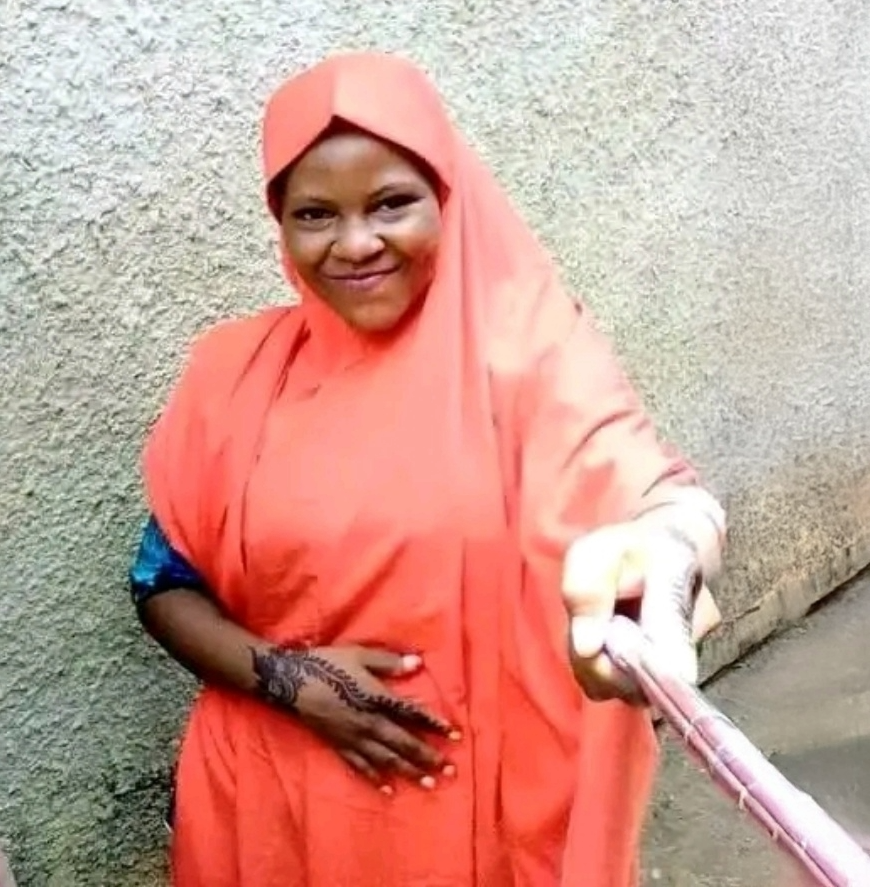
Failure to Inform
Zulaihatu Abdullahi dreamed of finishing school and building a home of her own. But at 19, she died of untreated kidney disease because no one could communicate with her in sign language. Her story reveals how Deaf Nigerian women are often left without lifesaving care. “If only she had access to healthcare where someone could guide her… explain each step, she might still be here,” says Hellen Beyioku-Alase, founder and president of the Deaf Women Aloud Initiative.
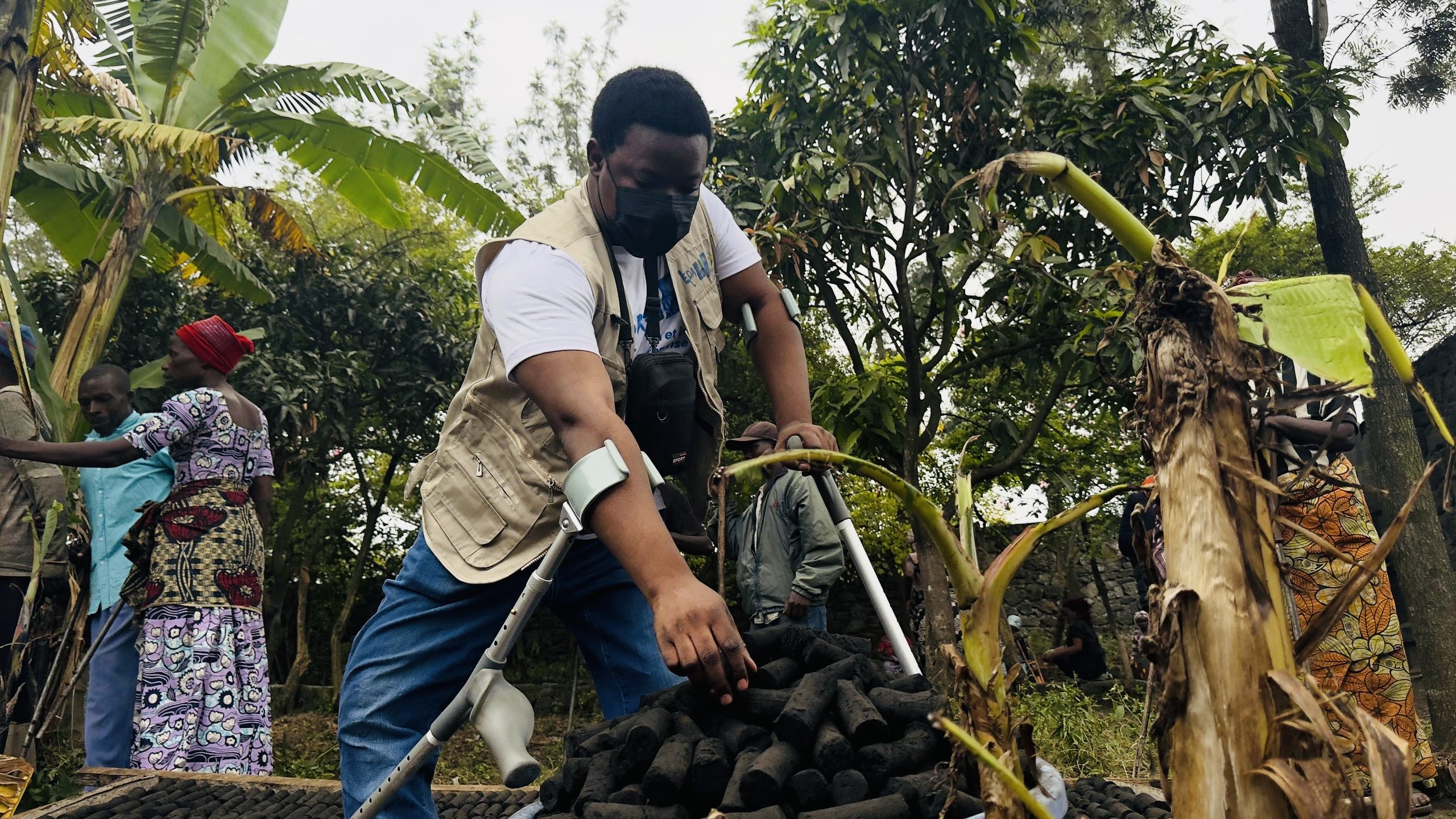
Disability in the Crossfire
In Goma, Democratic Republic of Congo, ongoing conflict and forced displacement have hit people with disabilities hardest. Rebel groups seized supplies from a clean cooking initiative designed to support displaced people with disabilities, leaving many trapped without aid. “It is still a big difficulty for authorities or government or humanitarian organizations to make a good decision which includes everyone,” says Sylvain Obedi of Enable the Disable Action.
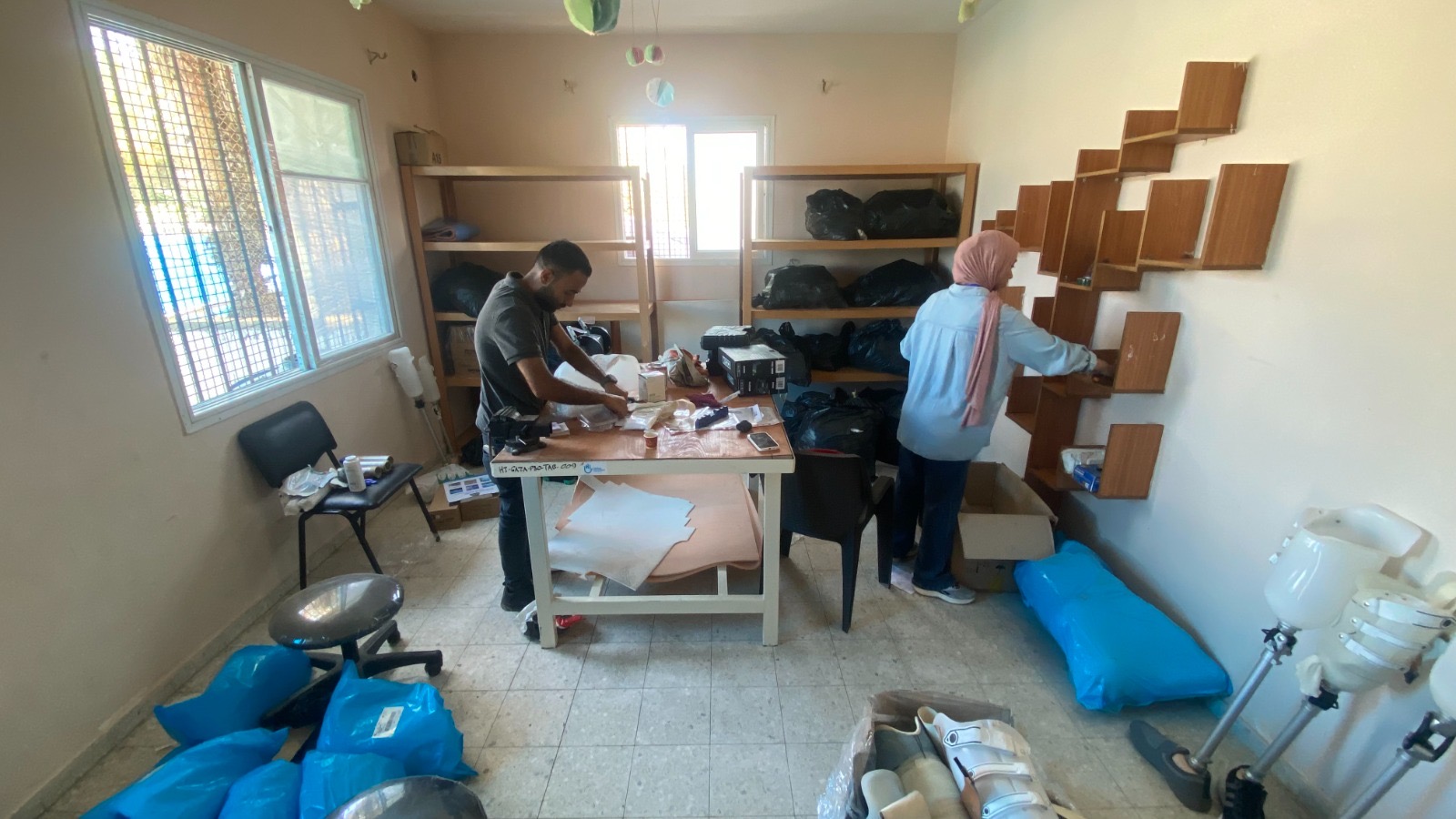
Gaza’s Amputees
At the Nahla Prosthetics & Orthotics Center in Gaza, staff wake up each day wondering if it’s safe to open before treating a handful of people in need of new limbs, adjustments, or psychosocial support. With famine declared in Gaza City and aid restricted, the center faces mounting shortages of materials and trained technicians. “Our colleagues call the situation a nightmare with no end,” says Zaid Amali, Humanity & Inclusion’s senior advocacy officer in Palestine.

‘People like Me Can Dare to Dream of Standing Upright’
Rwanda’s decision to cover prosthetic and orthotic services under national health insurance is being hailed as a milestone for disability rights. Advocates say it marks a shift toward greater inclusion and access to essential mobility aids. “This is more than a health policy,” says Jean Baribwira. “It is dignity, inclusion, and hope.” For many, the change represents long-overdue recognition of mobility as a basic right.
Read more about ‘People like Me Can Dare to Dream of Standing Upright’

More Than Words
In Nigeria, native sign languages like Yoruba, Hausa, and Igbo Sign Language are far more than communication tools. They are living expressions of Deaf identity and culture. While often dismissed as unsophisticated or “pidgin,” these local variants foster deep connection, creativity, and self-expression among Deaf communities, particularly those left out of formal education. “It isn’t something one can learn online,” says Douglas Izu. “One learns it through deep immersion in the adolescent Deaf community.”
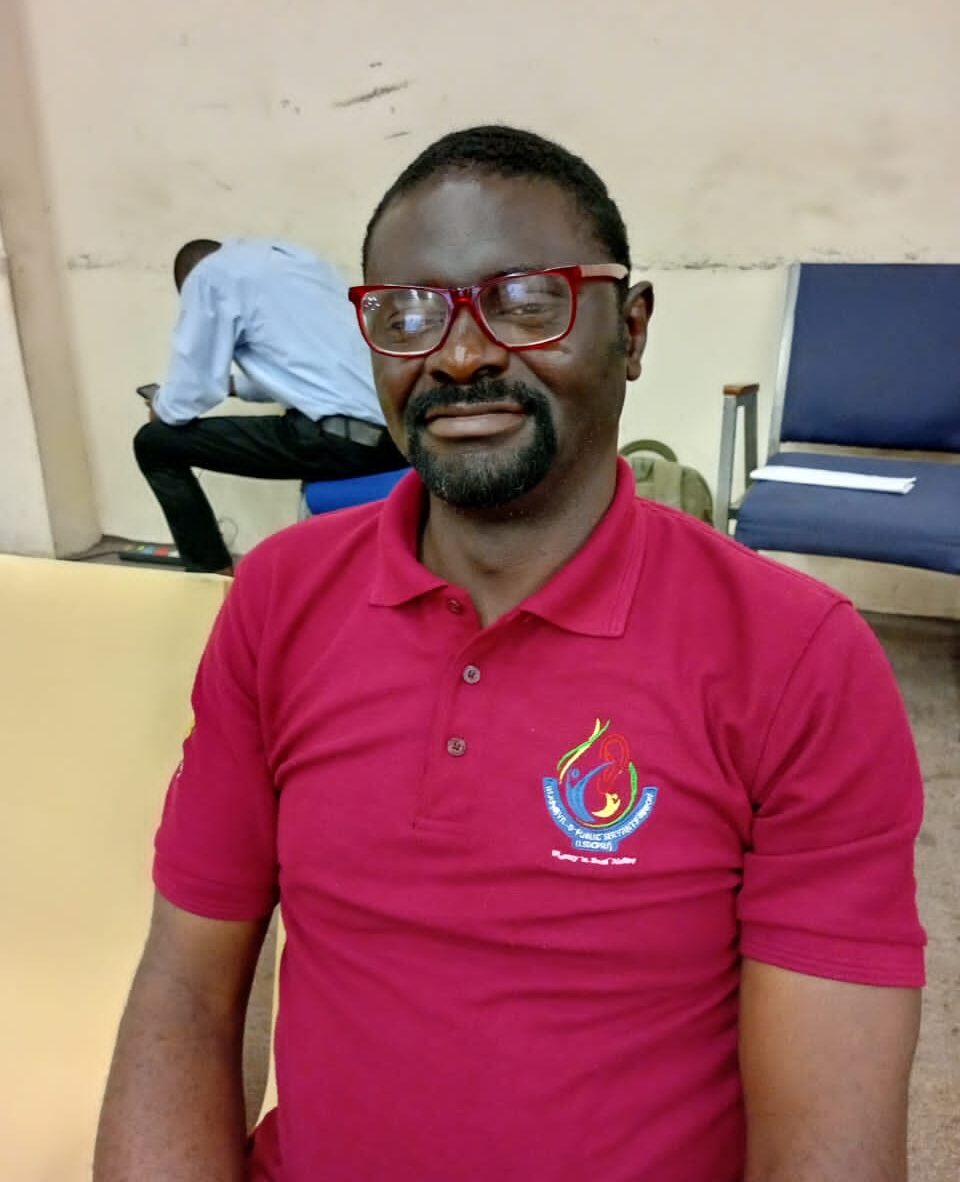
From Isolation to Advocacy
Nigeria’s DeafBlind community has long lacked recognition, but the launch of the Deaf-Blind Inclusive and Advocacy Network marks a turning point. Led by activist Solomon Okelola, the group seeks to address communication barriers and a lack of support. Among those affected is John Shodiya, who once thrived in the Deaf community but struggled with belonging after losing his sight.